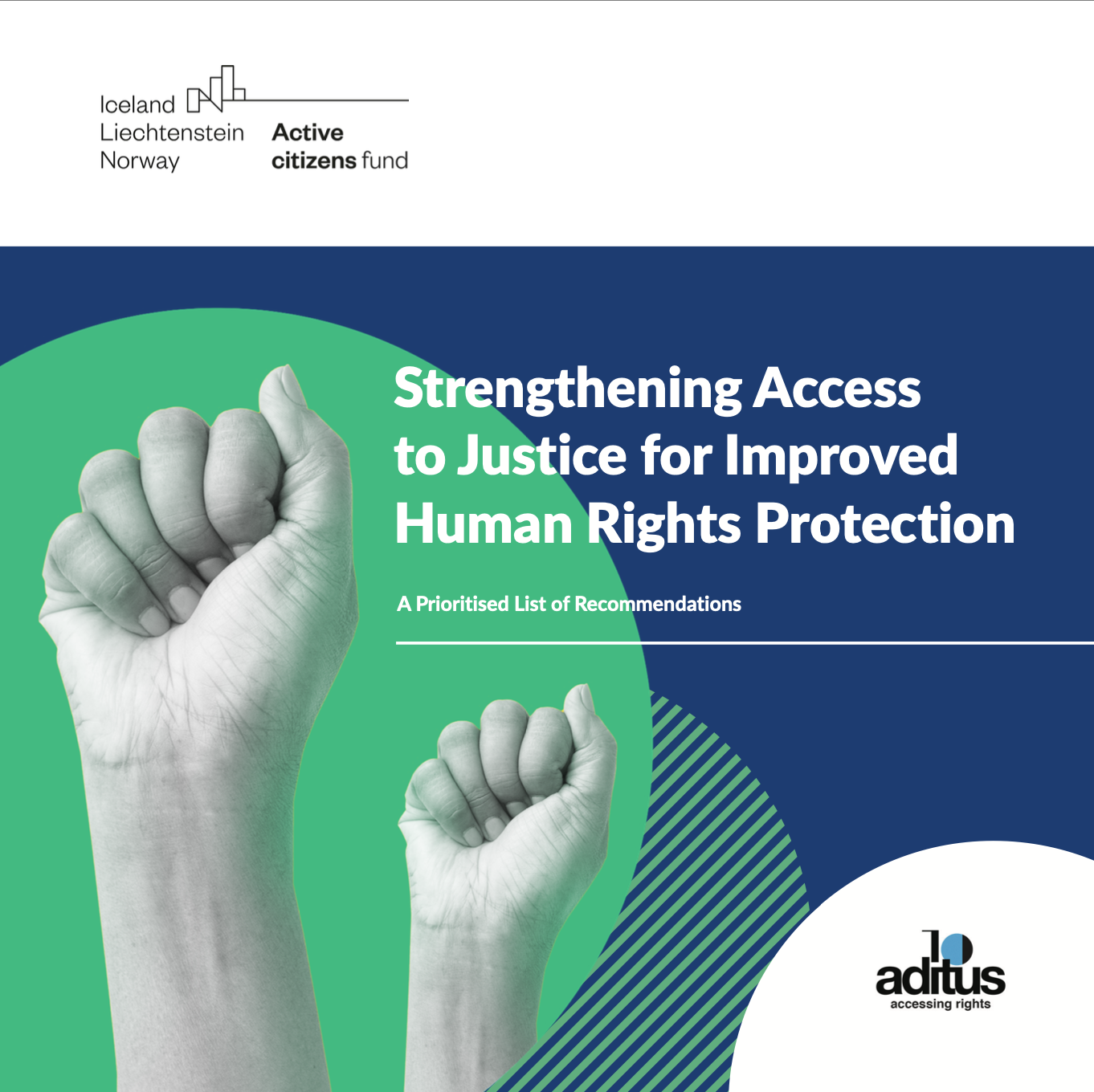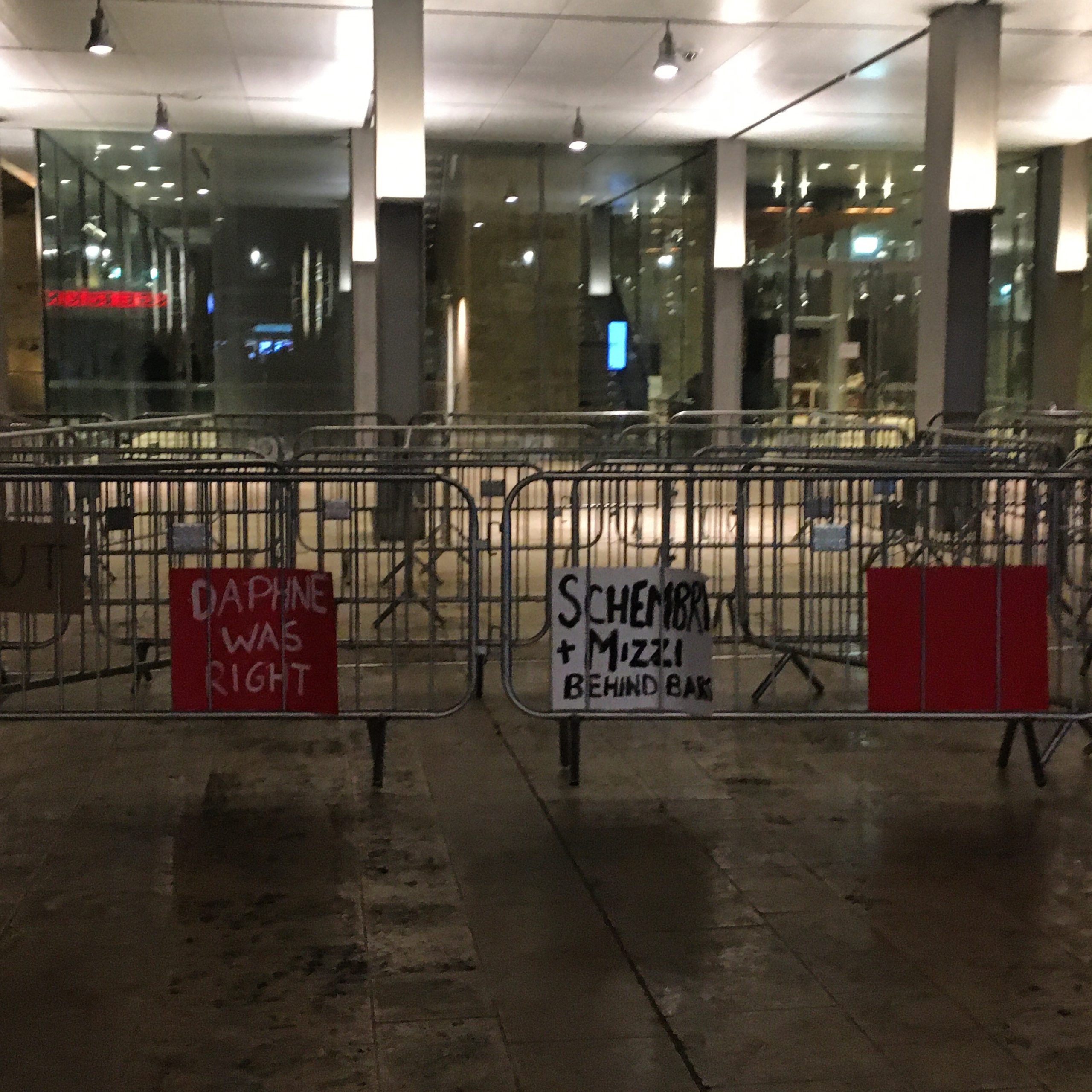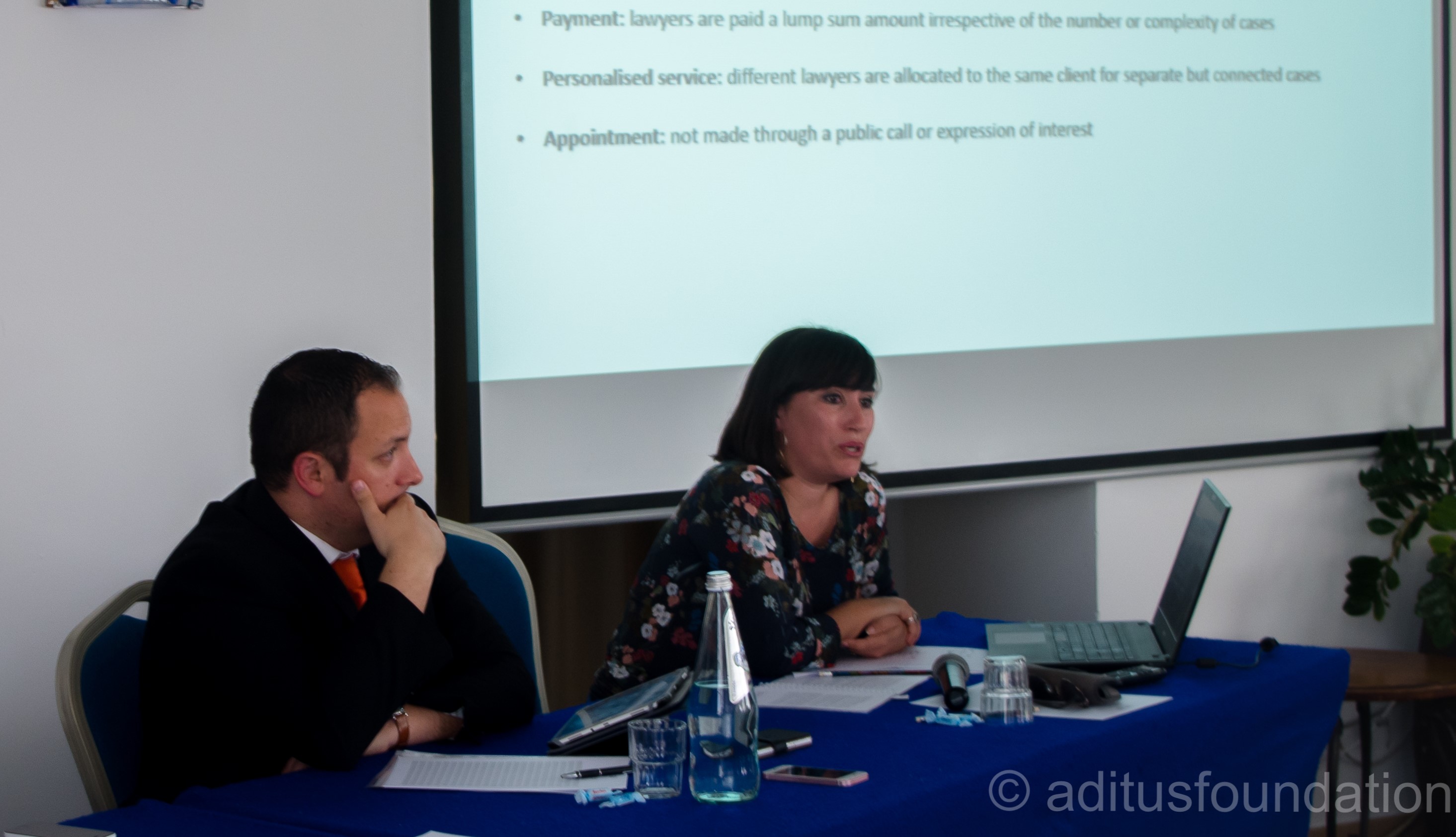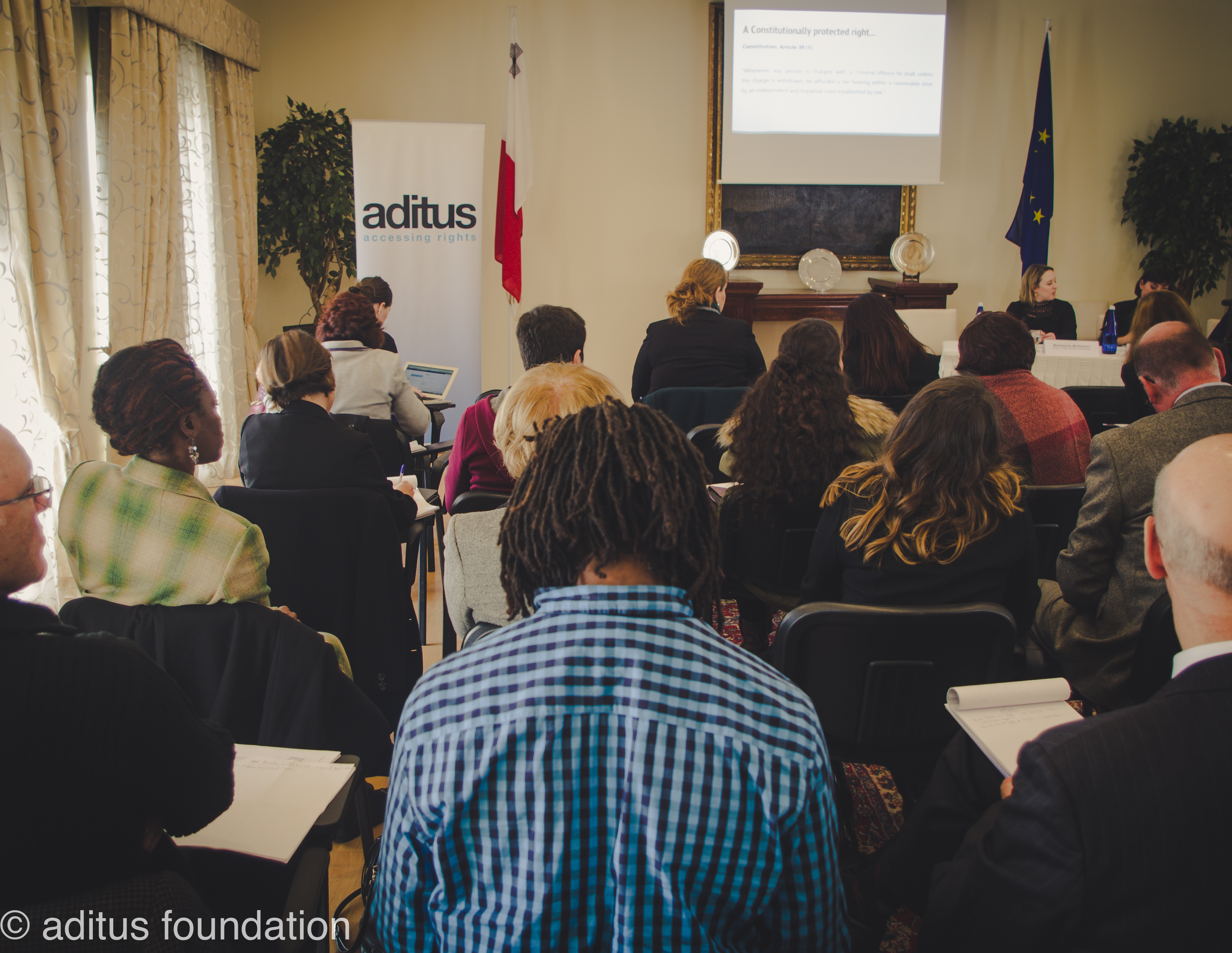
Project Background
‘Strengthening Access to Justice for Improved Human Rights Protection’ has the objective of improving access to justice for individuals wishing to strengthen their human rights protection in those instances when they feel that they have been violated. Our work has made us aware of the numerous human rights challenges faced by various groups of persons, primarily vulnerable or marginalised groups such as members of the LGBTIQ+ community, refugees and migrants, the elderly, children, persons with disabilities and those at risk of poverty, persons involved in prostitution, etc.
Whilst Malta has a relatively strong human rights regime that seeks to protect a long list of fundamental human rights, the practical protection offered to persons whose rights have been violated or might be violated is rather weak.
In several of our earlier projects, alone and also with several other NGO colleagues, we identified institutional obstacles to effective to justice for human rights protection. These obstacles have also been identified by several esteemed reports and research, including by the Venice Commission, the European Parliament, the European Commission and in the Vanni Bonello report on Malta’s justice system.
Examples include: difficulty accessing legal aid services, quality of legal aid services, capacity of administrative tribunals to cope with caseload, lack of expertise of some tribunals in relevant matters, lack of enforcement mechanisms, lack of protection of victims and more.
Project Description
The list of challenges is in indeed a long one, therefore the project will initially conduct a prioritisation exercise with key stakeholders in order to ensure that we target the most pressing and relevant obstacles. On the basis of this consultation exercise, our advocacy initiatives will target those entities and persons in authority that have a direct or indirect influence of the relevant legislation and/or policies.
Together with targeted advocacy activities, we will also organise a public conference where our recommendations will be presented to a wider audience, in order to gather further support and understanding of the issues vulnerable and marginalised groups face when seeking to access justice for their human rights protection.
Project Activities
More specifically, ‘Strengthening Access to Justice for Improved Human Rights Protection’ will be composed of the following key stages:
- Stage 1 – Formulation of SMART recommendations. We will perform a literature review of all related recommendations already made, so as to avoid duplication of efforts and to build on previous expertise and efforts by other professional entities. The literature review will constitute the technical input for a Consultation Roundtable that will seek to prioritise challenges/recommendations and map out the list of stakeholders to target.
- During this stage we will also carry out a survey with stakeholders in order to inform us as to the perceptions and recommendations in relation to access to justice for marginalised groups. The link to the survey: https://aditus.org.mt/survey-access-to-justice-for-marginalised-groups/.
- Stage 2 – Influencing laws and policies. The prioritised list of recommendations will be published in the form of input papers to facilitate understanding of the core issues how communities are affected by them. The input papers will be the basis on which we will organise a series of bilateral meetings with those stakeholders who may influence the relevant laws/policies. A public conference will be organised where the input papers will be presented and discussed, with experts delivering keynote presentations and working groups discussing details.
- Furthermore, we are also publishing a number of editorials, newspaper articles and blog posts in order to create a culture of understanding on the issues we are flagging. A list of our published articles can be found here:
- Two Steps foward, One Step Back, by Mireille Boffa and Carla Camilleri, published on the 24th October 2021.
- Venice Commission: regrets that 6 Bills adopted before opinion could be finalised, before it could engage with the national stakeholders, by Christine Dimech and Carla Camilleri, published on the 30th August 2021.
- Rule of Law: Justice, by Carla Camilleri, published on the 28th March 2021;
- SMART Goals To Strengthen Access to Justice for Improved Human Rights Protection, by Carla Camilleri, published on the 28th October 2022.
- Stage 3 – Monitoring and evaluation. Although listed here, this Stage will be actually a horizontal and on-going one. At the project’s outset, the literature review will be used to populate our advocacy database, listing all the laws and policies that need to be influenced in order to achieve our goals. The database will also act as baseline data and include the relevant stakeholder for each law/policy. Advocacy progress will be entered and monitored carefully. At the project’s end it will provide input into the project’s evaluation exercise.
For more information contact Project Leader Neil Falzon, Project Expert Carla Camilleri or Project Manager Katarzyna DeWilde.

Published: Input Paper on Access to Justice
The Strengthening Access to Justice for Improved Human Rights Protection project has as its objective the improving of access to justice for individuals wishing to strengthen their human rights protection in those instances when they feel that they have been violated. Whilst Malta has a relatively strong human rights regime that seeks to protect a long list of fundamental human rights, the practical protection offered to persons whose rights have been violated or might be violated is rather weak.

SMART Goals To Strengthen Access to Justice for Improved Human Rights Protection
The Strengthening Access to Justice for Improved Human Rights Protection project aims to improve access to Justice where fundamental human rights issues arise, with a particular emphasis on vulnerable or marginalised groups. However how does one turn seemingly intangible aims into practical goals that can be achieved? What is it really that we want to achieve? How is the rule of law linked to the enjoyment of rights for individuals?
Survey: Access to Justice for Marginalised Groups
Help us identify, prioritise and tackle institutional obstacles that stand between individuals and their enjoyment of fundamental rights within the local justice system by filling out this short survey. We wish to collect data to access to justice for marginalised and vulnerable, including migrants, victims of crime, disabled and LGBTIQ individuals groups in Malta.

Two Steps foward, One Step Back
The European Commission 2021 Rule of Law Report Country Chapter on the Rule of Law Situation in Malta According to the 2021 Rule of Law Report Country Chapter on the Rule of Law Situation in Malta, Malta has made significant progress within the domestic justice system particularly with regard to the reform of judicial appointments and judicial discipline, and also the appointment of the Chief Justice, in fact the level or perceived independence has increased and this in view of read more

Venice Commission: regrets that 6 Bills adopted before opinion could be finalised, before it could engage with the national stakeholders.
In this post we examine the Venice Commission’s Opinion CDL-AD(2020)019 on the 6 Acts adopted by the Government on the 29 July 2020. In a previous post, we examined the process undertaken by the Government whilst seeking to implement the legislative changes proposed in Opinion CDL-AD(2020)006. It is important to note that the Acts were adopted prior to receiving the opinion of the Venice Commission which was requested by the Government itself. On 23 June 2020, the Minister for Justice read more

Blogpost: Prosecution and imprisonment of refugees entering Malta using false documents
As a Malta-based NGO aditus monitors, acts and reports on access to human rights in Malta. We provide information and assistance to persons seeking to secure enjoyment of their fundamental human rights, or attempting to obtain an effective remedy against violations. It is within this spirit, that we have and will continue to engage with stakeholders to ensure adherence to Malta’s international, regional and national obligations. In recent news we have been seeing an increasing number of migrants who have read more

Rule of Law: Justice
Strengthening Access to Justice for Human Rights Protection In January 2021 aditus began working on the project Strengthening Access to Justice for Improved Human Rights Protection which has as its objective improving access to justice for individuals wishing to strengthen their human rights protection in those instances when they feel that they have been violated. This project is supported by the Active Citizens Fund (ACF) in Malta established under the specific Programme Area for Civil Society part of the EEA Financial Mechanism 2014-2021. In several read more
About the funder:
The EEA Grants represent the contribution of Iceland, Liechtenstein and Norway towards a green, competitive and inclusive Europe. There are two overall objectives: reduction of economic and social disparities in Europe, and to strengthen bilateral relations between the donor countries and 15 EU countries in Central and Southern Europe and the Baltics.
The three donor countries cooperate closely with the EU through the Agreement on the European Economic Area (EEA). The donors have provided €3.3 billion through consecutive grant schemes between 1994 and 2014. For the period 2014-2021, the EEA Grants amount to €1.55 billion. The priorities for this period are:
(i) Innovation, Research, Education and Competitiveness; (ii) Social Inclusion, Youth Employment and Poverty Reduction; (iii) Environment, Energy, Climate Change and Low Carbon Economy; (iv) Culture, Civil Society, Good Governance and Fundamental Rights and (iv) Justice and Home Affairs.
The EEA Grants are jointly financed by Iceland, Liechtenstein and Norway, whose contributions are based on their GDP. Eligibility for the Grants mirror the criteria set for the EU Cohesion Fund aimed at member countries where the Gross National Income (GNI) per inhabitant is less than 90% of the EU average.




